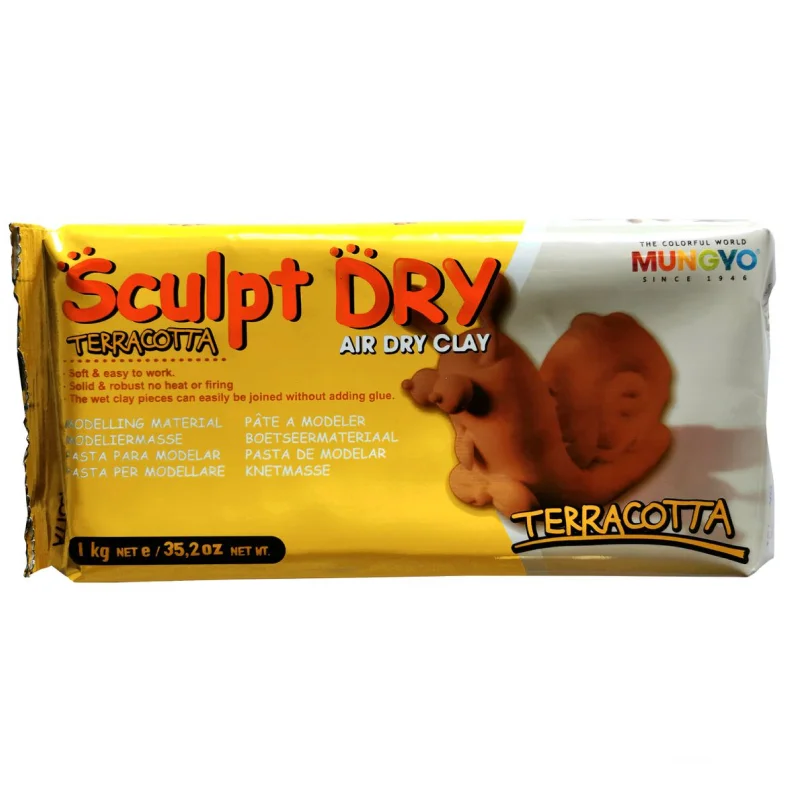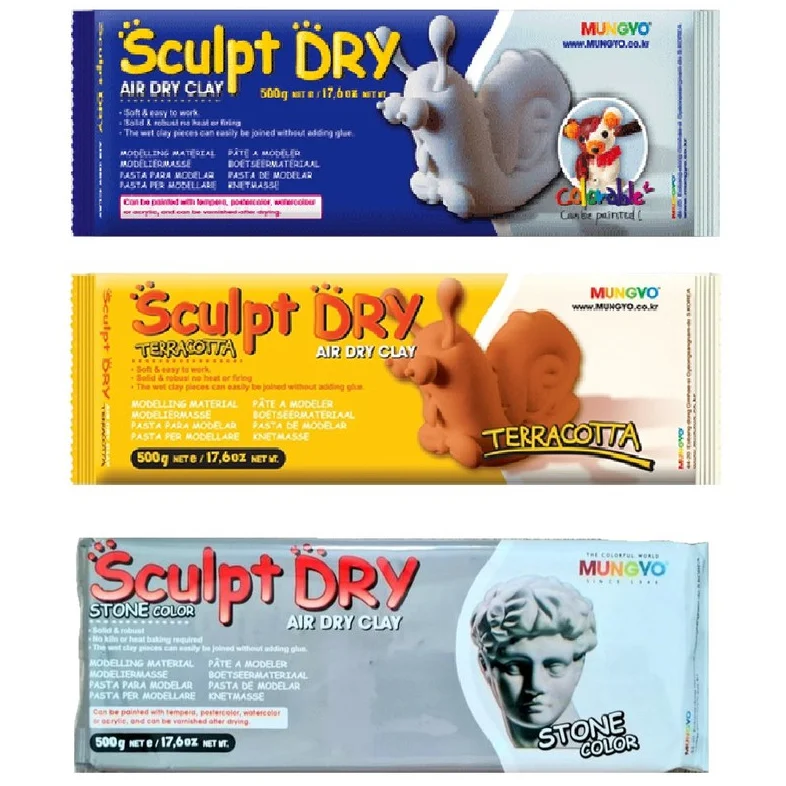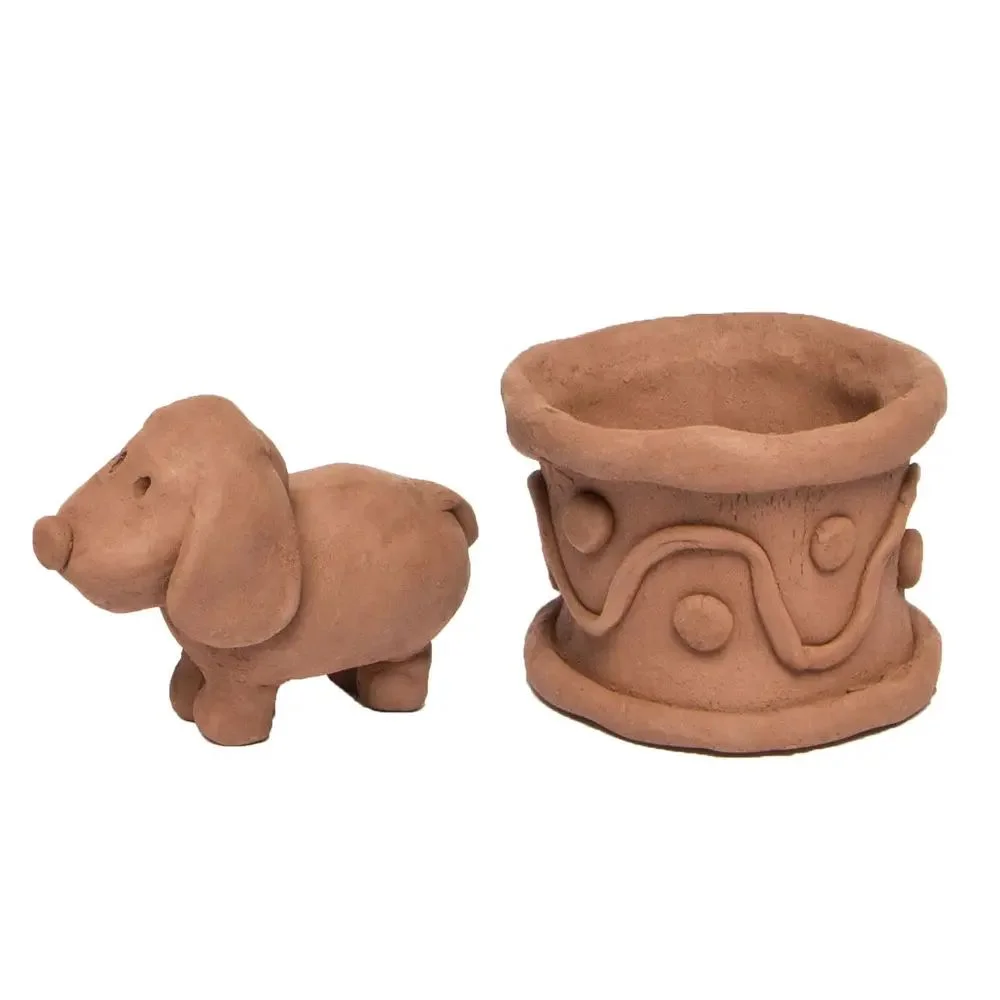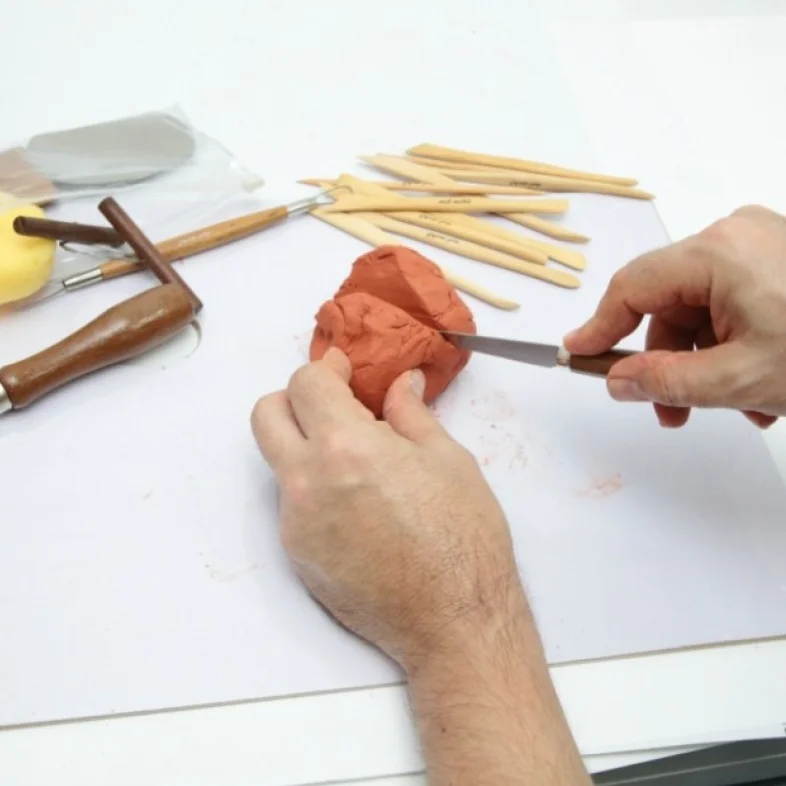Mungyo Sculpt Dry Air Dry Clay 1kg Terracotta
R150.00
- Mungyo Sculpt Dry is an air-drying clay that dries solid and robust without heating or firing.
- It is non-toxic, can be joined without glue, and can be painted with tempera, poster colour, watercolour or acrylic, and varnished after drying.
- Non-toxic and safe.
- Can be easily melded without even using glue.
- Dries perfectly in air, no fire or heating is required.
- Finished product can be coloured with paints.
- Mungyo Sculpt Dry Air Dry Clay is available in White, Stone and Terracotta.
- White Terracotta.
- Weight – 1kg.
Change the quantity above using the arrows (shown on hover) or manually input your desired amount.
How to use:
1) Wash your hands thoroughly and make sure your work surface is clean. Clay picks up every dust or particle on the work surface and your hands.
2) Roll clay out to about ¼ thickness or thickness desired. Stamp an image into the clay with a rubber stamp or press clay into any type of mold and remove. Trim with the cutting tool if needed. You can also hand form or sculpt the clay.
3) Place on wax paper to dry turning every few hours for even drying. To avoid curling you might want to weigh down the clay after a few hours of drying.
4) You can also use this clay to sculpt. It easily can be coloured, painted, inked, chalked, glittered, and otherwise embellished. Excellent for children’s projects.
5) Store unused paper clay is a sealed airtight plastic bag and container.
Tips:
Clay adheres to most surfaces with a dab or two of glue.
You can cut this clay while still wet or when it has dried.
Use a wet fingertip to smooth rough edges while clay is still wet.
Use a fine sanding paper or emery board to smooth clay edges once clay has dried.
You can paint, ink, or chalk a dry piece of paper clay.
You can add paint, ink, or chalk to wet clay to color it!
Make an embellishment for the front of a scrapbook, diary or journal.
Another wonderful way to use your rubber stamps. You can make buttons to coordinate your designs and projects.
Store unused clay in an airtight container like a zip-lock plastic bag. You cant add water to clay to restore, once it dries out, it’s not re-useable!




